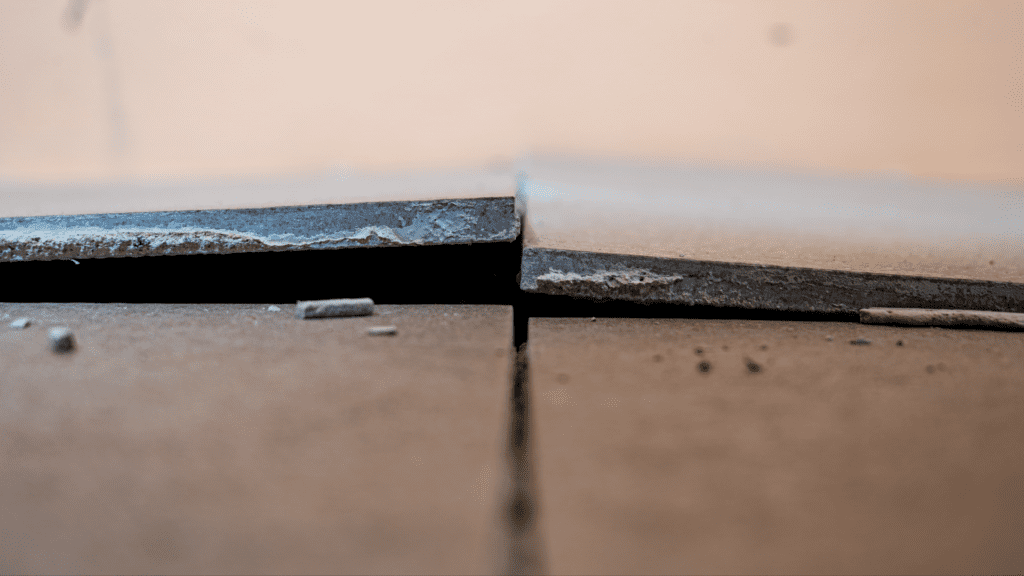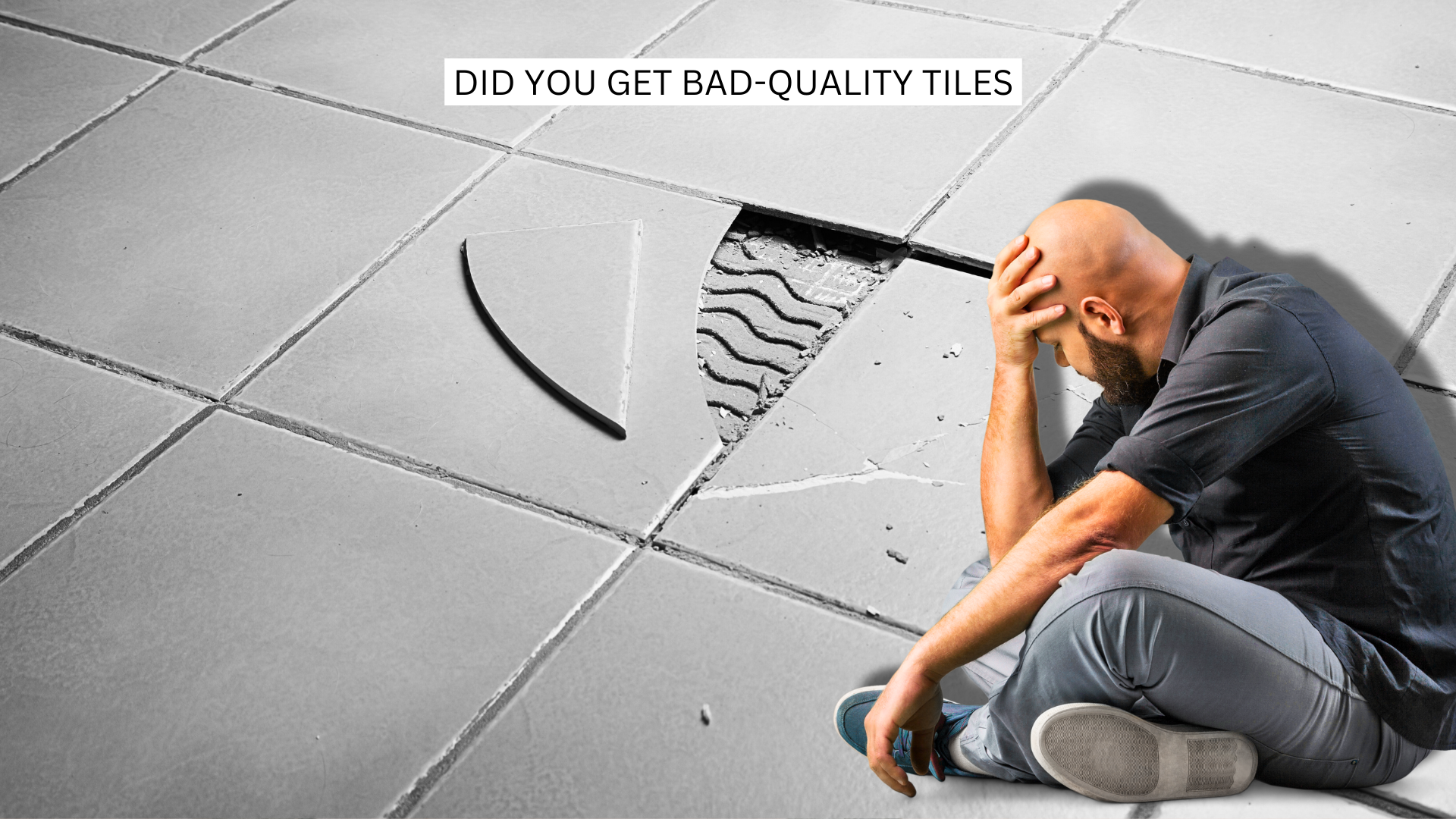Out of all options, tiles made of ceramic material are most popular for flooring and moisture-prone walls. And they deserve it because of multiple favourable characteristics like durability, maintenance, range of aesthetics, and affordability. But this is half of the story. It is not giving any hint what caused bad-quality tiles.
The other half of the story is disappointing. A sizeable number of people who migrate from conventional marble flooring often face disappointment. Level difference, curvature, chipping, detachment of tiles from substrate, cracks, scratches, and a few more things they did not expect. And they are not wrong if they doubt the quality of the tiles they received. However, there is something beyond tiles too. In this article let me introduce you to these ‘beyond tile quality’ reasons.
1). Poor Selection of Tiles
While the selection of tiles is guided by its visual appeal, there are some critical properties that may get ignored. For example – one may like large-size porcelain slabs that resemble exquisite Italian marble in mirror polish finish. The tile is ‘vitrified’ so you are right in thinking that it is a durable and ‘strong tile’. Nothing wrong. And you put it in a restaurant, or any floor which received high footfall throughout the day. You are creating a potential situation for bad quality tile, innocently.
You are bound to get disappointed soon by the scratches it will have. Is it the bad quality of a vitrified / porcelain tile? No. It is a bad choice from the vitrified category. The porcelain body is strong, no doubt. But scratch resistance is a surface property, irrespective of its body structure. If you use high gloss PGVT (Polished GVT) on a public space floor, it is a poor choice.
Read this Article also: Why Ceramic Tiles Became the Most Favorable Flooring Material
There are other options in the vitrified tiles that have much higher scratch or abrasion resistance waiting for your kind perusal! We need to consider the usage environment and seek essential characteristics in the tile chosen accordingly apart from the aesthetics.
2). Inadequate Substrate
Poor subfloor preparation is another reason. Inadequate cleaning, levelling, or structural stability of the subfloor might result in problems like uneven tile installation, chipping, or tile detachment.

3). Wrong Selection of Mortar to fix Tiles
The role of mortar is to create strong adhesion and adjust minor movements due to structure or temperature (thermal expansion). No one size fits all. You need a specific tile adhesive to install large-size porcelain tiles on external walls, not the one you used for your bedroom flooring with wooden finish ceramic tiles. The selection of the right tile adhesive is as important as the tile. It must adhere to the substrate as well as the back of the tile.
4). Mistake of Avoiding Tile Joints
As humidity and temperature fluctuate, ceramic tiles expand and compress. If there aren’t enough expansion joints to allow for this movement, the tiles may get stressed and eventually break or come out.
5). Poor Installation, not Bad-Quality Tiles
Failure might arise from using improper tile installation procedures. This includes using the wrong grout, placing the tiles incorrectly, applying the adhesive too thinly, or using the wrong curing period. Tiles that are not firmly attached to the substrate or are prone to chipping, moving, or detaching can result from any of these causes.
Read this Article also: Tile Adhesive and Grouts | Untapped Potential in India
6). Ignoring Waterproofing
Tiling needs waterproofing, yes you heard it right. The tiles are almost waterproof provided, but the tiled surface needs to be waterproofed. Water from beneath or through joints damages the adhesive and in the long term, it affects the tiled surface in various ways.
7). Structural Movements:
The integrity of the tile installation may be impacted if the substrate, or the surface underneath the tiles, moves or settles. Tile loosening, lippage (uneven tile edges), and fractures in the tiles can all be caused by subfloor movement.
Buy this Book: MODERN CERAMIC TILES: A Handbook for Professionals
8). Poor Maintenance
To guarantee tile flooring’s lifetime and functionality, proper care is required. Over time, tile failure may result from a failure to adhere to prescribed cleaning and maintenance standards, such as the use of harsh chemicals or abrasive cleaning techniques, or from failing to swiftly treat small concerns.


